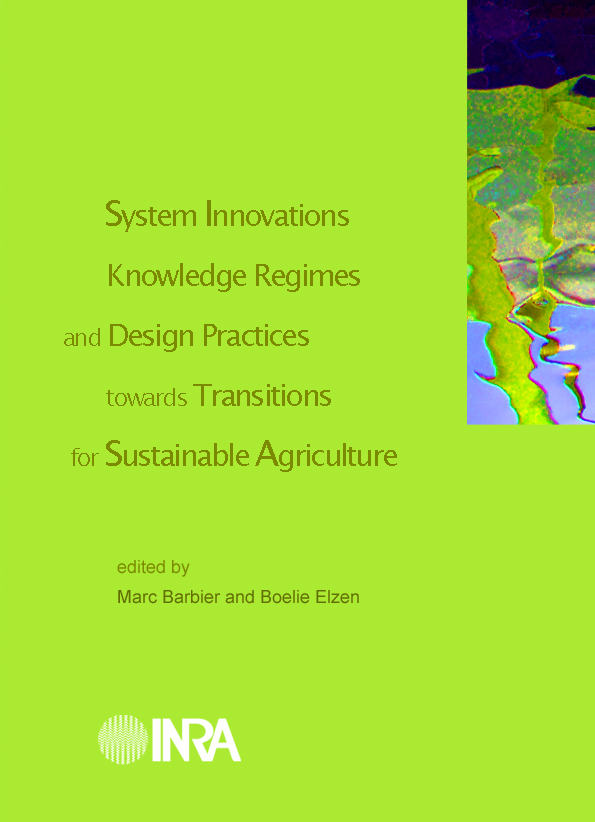 |
System Innovations, Knowledge Regimes, and Design Practices towards Sustainable AgricultureBook par Barbier Marc et Elzen Boelie Over the past decade, the transition towards sustainable agriculture has been a central theme in the work of many organisations, including government bodies, NGOs, professional organisations and research institutions. Various publications, including White Papers by the EU and different national governments, define future targets and objectives to improve sustainability in various sub-sectors like animal production, arable farming, or glasshouse horticulture. There are furthermore growing concerns about the sustainable use of biomass for fuel, feed and fibres, which also became public issues in terms of ethical or economic relations regarding the multi-functionality of agriculture. It has become clear that the development of our industrial societies has had serious negative effects. This is true for a variety of sectors including the agro-food system (sensu largo, that is, including the production of food, feed, fuel and fibres). Despite most governments’ adoption of the notion of sustainable development as a basic policy principle, it is becoming increasingly clear that the achievement of a ‘post-industrial’ society will not necessarily result in a more sustainable society, i.e. a society that is characterised by a better balance between economic, social and ecological goals. Ensuring that any transition that might be taking place does lead to more sustainability is a major challenge for societies in general and for agro-food systems in particular. In this context the relations between agronomic science, agricultural technologies, and public or private expectations are at stake. This leads to claims for “innovative innovation” concerning the purposes and ways of designing new technologies and practices, or new practices in relation to existing techniques. In fact, these claims indicate a need for a shift in the governance of research and innovation to achieve a sustainable future. This book is directed at those involved in research activities and decision-making that target sustainable transitions of the agricultural sector, food system and more largely environmental planning and ecosystem services. The contributions provide substantial reflections and case studies, and question the type of relationships and knowledge exchanges that should enhance the delivery of more sustainable system innovation and foster more diversity in the governance of transitions.
Download the whole document [pdf, 8Mo] Preface & Acknowledgements [pdf] Introduction[pdf] Part I – Alternatives to industrialised agricultureChapter 1. New identities, new commitments : something is lacking between niche and regime[pdf] Chapter 2. The contribution of conversion to organic food and farming to the analysis of dynamics and governance in transitions towards sustainable agri-food systems [pdf] Chapter 3. Coexisting organic standards : setting boundaries, navigating multiplicity and enacting commonality [pdf] Chapter 4. Bridging incompatible regimes : how the formation of intermediary regimes drives system innovation [pdf] Part II – Intervention with designChapter 5. The art of ’doing’ sustainable agricultural innovation : approaches and attitudes to facilitating transitional projects [pdf] Chapter 6. Participatory action research initiatives to generate innovations towards a sustainable agriculture : a case study in Southern Spain [pdf] Chapter 7. Reflexive interactive design as an instrument for dual track governance [pdf] Chapter 8. Co-design as an emerging distributed dialogical process between users and designers [pdf] Part III – Innovation with promiseChapter 9. Contending european agendas for agricultural innovation [pdf] Chapter 10. Understanding eco-industrial development processes through multiple change perspectives [pdf] Chapter 11. Developing sustainable livestock production systems. Outline of a learning and experimentation strategy (LES) [pdf] Chapter 12. The sustainable fibres of generative expectation management : the « building with hemp » case study [pdf] ConclusionInducing change towards sustainable agriculture [pdf] Citing this documentBarbier M. and Elzen B. (eds), 2012. System Innovations, Knowledge Regimes, and Design Practices towards Transitions for Sustainable Agriculture. Inra [online], posted online November 20, 2012. |